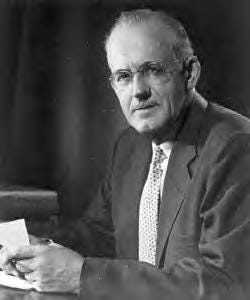What were the “worship wars”? The worship wars were (and are) a contentious series of arguments that churches about styles of music that began in the late 60s and continue till today. Many Southern Baptist churches argued over the musical preference and the very definition of worship.
To be fair, Christians have been asking “What is the right way to worship?” for at least a couple hundred years. But the intensity of these disagreements became particularly contentious.
During one of the more contentious seasons, Southern Seminary began offering a class (“The Worshiping Church”) to help future church leaders navigate these treacherous waters. I now teach this class and have thought about these forces for some time.
Lament for the “Missing Jewel”
The worship wars didn't start because of one person, but one person stands for a sense that something was missing in the worship of our churches—A. W. Tozer. Born in 1897 and died in 1963, Tozer was a famous preacher and author who pastored churches in West Virginia, Chicago, and Toronto.
Tozer believed that there was something missing in our churches—a grand sense of God. The first sentence in his best-known book, Knowledge of the Holy reads, “Whatever enters your mind when you think about God is the most important thing about you.” It is a powerful insight. In a later book, provocatively titled Whatever Happened to Worship, he writes, “Worship acceptable to God is the missing crown jewel in evangelical Christianity” (emphasis added).
Tozer wasn't alone. Many evangelicals had a sense that something was missing from evangelical worship. A popular worship textbook during my undergraduate studies even borrowed Tozer’s metaphor—Ronald Allen and Gordon Borror’s book, Worship: Rediscovering the Missing Jewel.
In his book, Tozer said in this book he was impressed with the sizes of our churches, impressed with the hustle and bustle and the programming of the churches. He felt what was missing was a depth of ministry, a weight of experiencing God. Tozer did not prescribe practical steps that local churches should take to fix the situation as he was more of a passionate and prophetic mystic than a dispenser of advice.
This is a good way to understand the worship wars. Before we explore the different groups and their arguments for various expressions of worship, it is helpful to understand the shared experience that motivated these movements.
People felt like something was missing. Different groups of Christians pursued different, contradictory answers.
The Evangelical Quest for ‘More’
Those different answers became a source of argumentation and debate between different parts of the church. I’m calling the search for three of largest answers “The Evangelical Quest for ‘More.’” Discussing this quest will shape the next three issues of our newsletter.
Part 2: The Quest for Roots—Liturgical Renewal
Part 3: The Quest for Power—Pentecostalism
Part 4: The Quest for Skills—The Church Growth Movement




